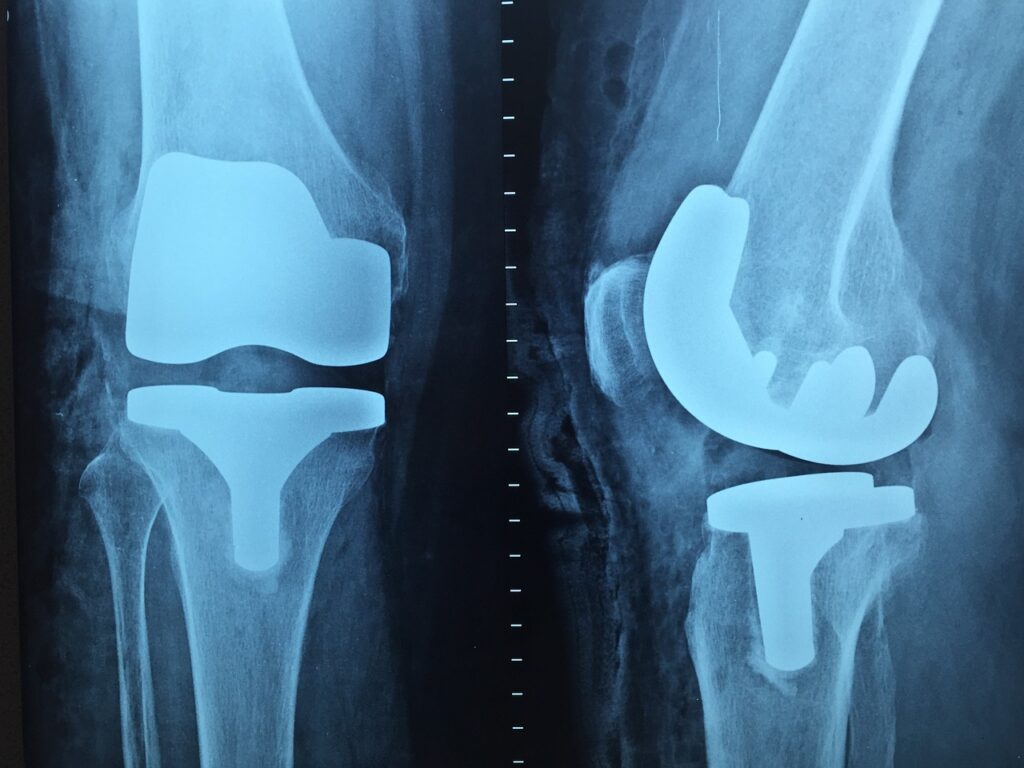What are the Top 10 Mistakes to Avoid After Knee Replacement?
Knee replacement surgery can be a life-changing procedure, offering relief from chronic pain and restoring mobility. However, the success of the surgery depends not only on the procedure itself but also on the patient’s post-operative care and lifestyle choices. In this article, we’ll explore the top 10 mistakes to avoid after knee replacement to ensure a smooth recovery and long-term success.
Table of Contents
| S.No. | Headings |
|---|---|
| 1. | Neglecting Physical Therapy |
| 2. | Overexerting Yourself Too Soon |
| 3. | Ignoring Pain and Swelling |
| 4. | Skipping Medication and Follow-Up Appointments |
| 5. | Not Following Proper Nutrition |
| 6. | Neglecting Wound Care |
| 7. | Returning to High-Impact Activities Too Early |
| 8. | Ignoring the Importance of Rest |
| 9. | Neglecting Weight Management |
| 10. | Neglecting Mental Health |
What are the Top 10 Mistakes to Avoid After Knee Replacement?
1. Neglecting Physical Therapy
One of the biggest mistakes people make after knee replacement surgery is neglecting or skimping on physical therapy. Physical therapy plays a crucial role in rebuilding strength, flexibility, and range of motion in the knee joint. It helps prevent stiffness and promotes faster healing. Skipping or not fully committing to physical therapy sessions can hinder your recovery progress and lead to long-term mobility issues.
2. Overexerting Yourself Too Soon
It’s natural to want to resume your normal activities as soon as possible after knee replacement surgery, but overexerting yourself can do more harm than good. Pushing too hard too soon can strain the newly replaced joint, increase pain and swelling, and even cause complications. It’s essential to follow your surgeon’s and physical therapist’s guidelines regarding activity levels and gradually increase intensity as you heal.
3. Ignoring Pain and Swelling
Pain and swelling are common after knee replacement surgery, but ignoring them can be detrimental to your recovery. While some discomfort is expected during the healing process, persistent or severe pain and excessive swelling could indicate a problem such as infection or improper healing. It’s crucial to communicate any unusual symptoms with your healthcare provider promptly.
4. Skipping Medication and Follow-Up Appointments
Following your prescribed medication regimen and attending follow-up appointments with your surgeon are vital components of post-operative care. Medications help manage pain and prevent infection, while follow-up appointments allow your surgeon to monitor your progress, address any concerns, and make necessary adjustments to your treatment plan. Skipping medication doses or appointments can compromise your recovery and result in complications.
5. Not Following Proper Nutrition
Proper nutrition is essential for healing and recovery after knee replacement surgery. A balanced diet rich in vitamins, minerals, and protein provides the necessary nutrients for tissue repair and strengthens your immune system. Neglecting proper nutrition can delay healing, weaken your muscles, and increase the risk of infection. Make sure to eat a variety of healthy foods and stay hydrated to support your body’s healing process.
6. Neglecting Wound Care
Proper wound care is crucial to prevent infection and promote healing after knee replacement surgery. Follow your surgeon’s instructions regarding wound care, including keeping the incision site clean and dry, changing dressings as instructed, and watching for signs of infection such as redness, swelling, or discharge. Neglecting wound care can lead to complications and prolong your recovery time.
7. Returning to High-Impact Activities Too Early
While it’s essential to stay active after knee replacement surgery, returning to high-impact activities too soon can put excessive stress on the new joint and increase the risk of complications. Activities such as running, jumping, or participating in contact sports should be avoided until your surgeon clears you to do so. Instead, focus on low-impact exercises like swimming, cycling, or walking to gradually build strength and endurance.
8. Ignoring the Importance of Rest
Rest is just as important as physical activity during the recovery process after knee replacement surgery. Your body needs time to heal and recover from the trauma of surgery, so it’s essential to prioritize rest and relaxation. Listen to your body’s cues and take breaks when needed, especially after physical therapy sessions or strenuous activities. Adequate rest helps reduce pain and inflammation and promotes overall healing.
9. Neglecting Weight Management
Maintaining a healthy weight is essential for the success and longevity of knee replacement surgery. Excess weight puts additional strain on the knee joint, increasing the risk of complications and implant failure. Following a balanced diet and engaging in regular exercise can help you achieve and maintain a healthy weight, reducing stress on your knees and improving overall outcomes.
10. Neglecting Mental Health
Recovery from knee replacement surgery can be physically and emotionally challenging, and neglecting your mental health can impact your overall well-being and recovery progress. It’s normal to experience a range of emotions during the recovery process, including frustration, anxiety, or depression. Seeking support from friends, family, or a mental health professional can help you cope with these challenges and stay motivated throughout your recovery journey.
Conclusion – What are the Top 10 Mistakes to Avoid After Knee Replacement?
Avoiding these common mistakes can significantly improve your recovery experience and long-term outcomes after knee replacement surgery. By prioritizing physical therapy, listening to your body, following medical advice, and taking care of your overall well-being, you can ensure a smooth and successful recovery.
FAQs
1. Can I drive after knee replacement surgery? Yes, but it’s essential to wait until your surgeon clears you to drive. Typically, this is around four to six weeks after surgery once you can comfortably control the vehicle and perform emergency maneuvers.
2. How long does it take to recover fully from knee replacement surgery? Recovery time varies for each individual, but most people can expect to resume normal activities within three to six months after surgery. However, it may take up to a year to achieve full recovery and see the final results.
3. Is it normal to experience stiffness in the knee after surgery? Yes, stiffness is common after knee replacement surgery, especially in the initial weeks. However, regular physical therapy and gentle exercises can help improve flexibility and reduce stiffness over time.
4. When can I return to work after knee replacement surgery? The timing of your return to work depends on the type of job you have and how physically demanding it is. Desk jobs may allow for a return to work within a few weeks, while jobs that require heavy lifting or prolonged standing may require a more extended recovery period.
5. What should I do if I experience persistent pain or swelling after surgery? If you experience persistent pain or swelling after knee replacement surgery, it’s essential to contact your surgeon promptly. These symptoms could indicate a complication such as infection or implant loosening, which require medical attention
- Best Car Insurance Provider in United States Texas Dallas 2024
- Unveiling the Infosys Google Deal: A Game-Changer in the Tech Industry
- Maximizing Your Legal Protection: The Role of a Lawyer for Car Accidents 2024
- What are the Top 10 Mistakes to Avoid After Knee Replacement? 2024 Best Information
- What is a suggested low income internet with spectrum?


